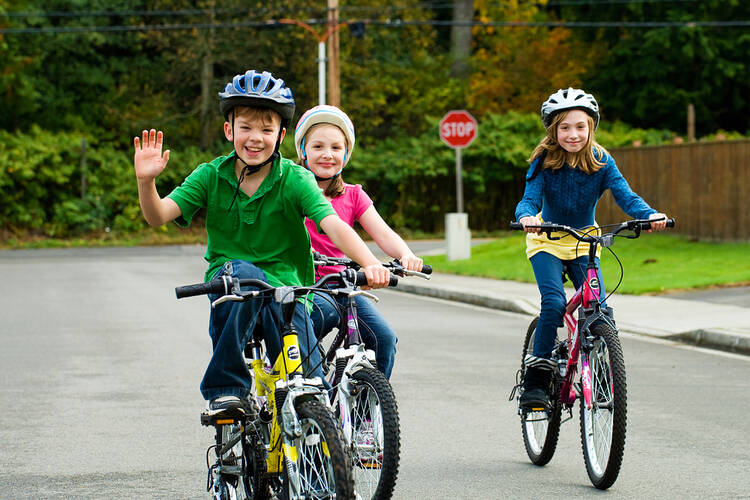Kids and dogs. We see a lot of them during the Christmas season, thanks to family gatherings and annual visits to neighbors. For many of us with no kids or whose children have grown up, Christmas is one of the rare times when we come face-to-face with the youngest generation.
For most of the year, children just aren’t as visible as they used to be, and I wonder if that has implications for how we feel about education and about social-welfare programs that disproportionately benefit children. In November, the Atlantic Cities’ Kaid Benfield wrote a post (“A City with No Children”) on the modern phenomenon of keeping kids under wraps — that is, preventing them from walking to school or to friends’ houses, and forbidding them to play on sidewalks and streets. Benfield links to a report about a Texas mother arrested for letting her children ride scooters on her cul-de-sac (see video) and writes about the way Americans must essentially smuggle their children to out-of-sight schools:
Saratoga Springs in New York made national news some years ago when a middle school refused to admit a student who, on national Bike to Work day, bicycled to school with his mom. On the other side of the country, Laguna Beach's schools declined to join the other 425 in California who participated in Walk to School Day in 2010 because walking to school, the decision-makers determined, was inherently unsafe, no matter how coordinated and supervised.
How in the world did it come to this? Well, as I've written before, school sprawl — placing new schools on the edges of communities where no one lives within walking distance even if that's what they would prefer — is a significant part of the problem.
Benfield discusses the implications of this trend for obesity rates and the lack of opportunities for children to “learn social skills from unsupervised peer activity.” Worthy topics, but one issue I’d like to see explored in 2014 is the effect on politics of cities and neighborhoods with “no children” (whether because they’re hidden or because they’re rare, as in some high-cost cities like San Francisco). Simply being aware of the next generation could force us to think about not only policies that affect them now but also about long-term problems like climate change. (See Joshua Tucker on the difficulty of getting people to support legislation that entails costs for people who “will not be alive to see the benefits.”) When we can go about our daily lives without seeing children at all, it may be easier to forget about them in the voting booth.








